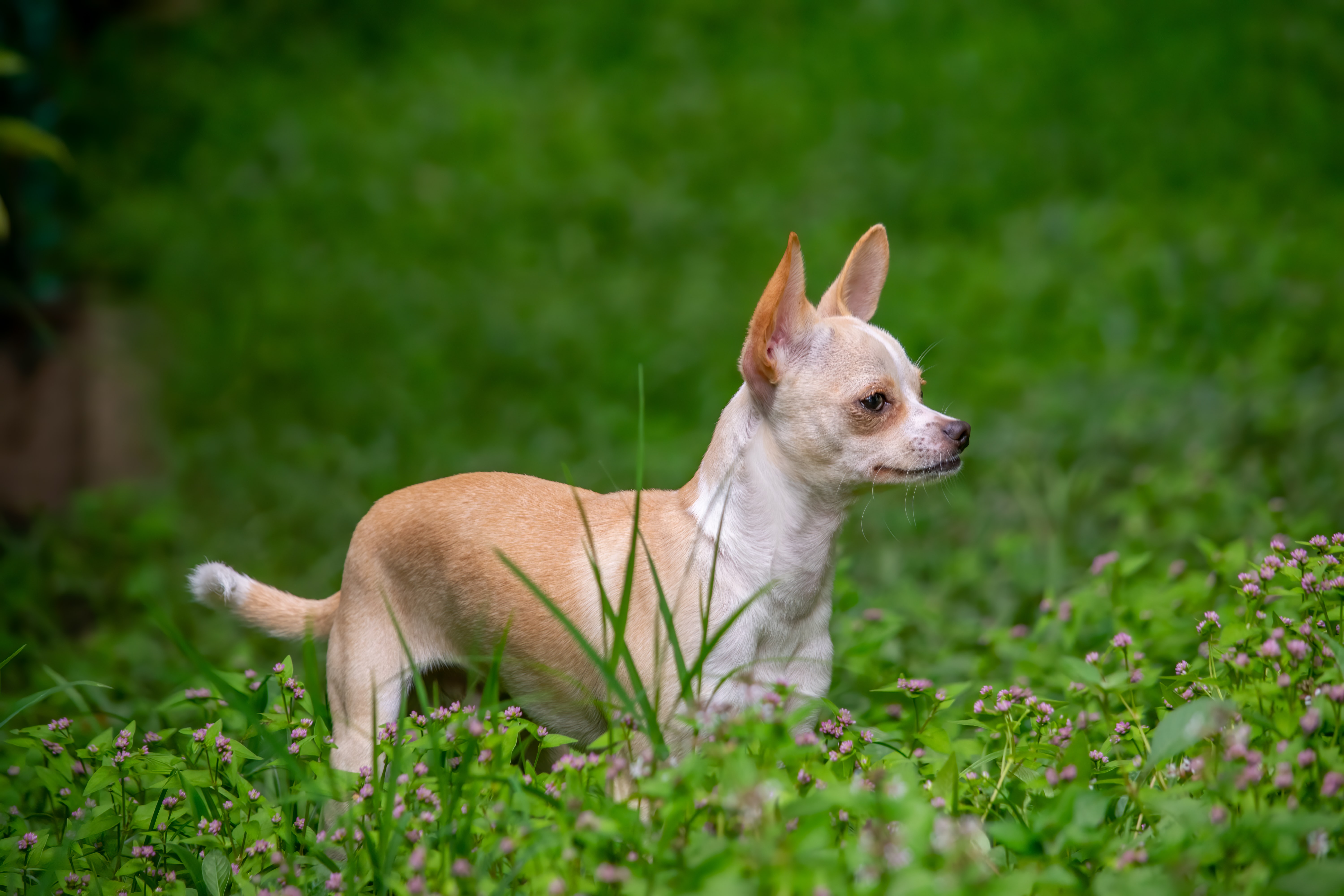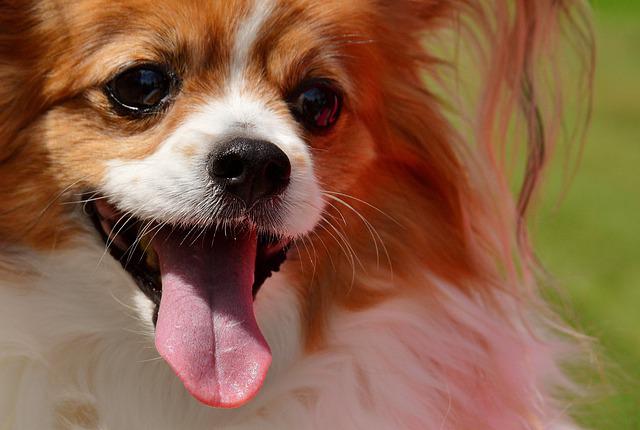Chihuahuas are sensitive dogs and they don’t like being left alone for long periods. This can be a challenge to their owners, especially those who work long hours. So how long can you leave a Chihuahua alone? It depends on a few factors because separation anxiety in dogs can be tricky.
Despite their feisty nature, this doggo is actually bred for companionship. They are fiercely loyal to their owners and will become anxious and stressed in isolation.
If you’re wondering how long you can leave your Chi at home, it’s important to know a few things. I also discussed here alternatives you can try if you’re worried about your Chihuahua.
Causes of separation anxiety in Chihuahuas
Separation anxiety is fairly common among all dog breeds, not just Chihuahuas. According to experts, around 20% to 40% of all dogs in the world suffer some level of separation anxiety.
As for Chihuahuas, this problem is quite a big one. This breed may have a larger-than-life personality, but they are also quite dependent on their masters.
If you’re wondering, the following are the common causes of separation anxiety in Chis. See which of these is likely the culprit behind your doggo’s nervous behavior:
Being left alone for the first time
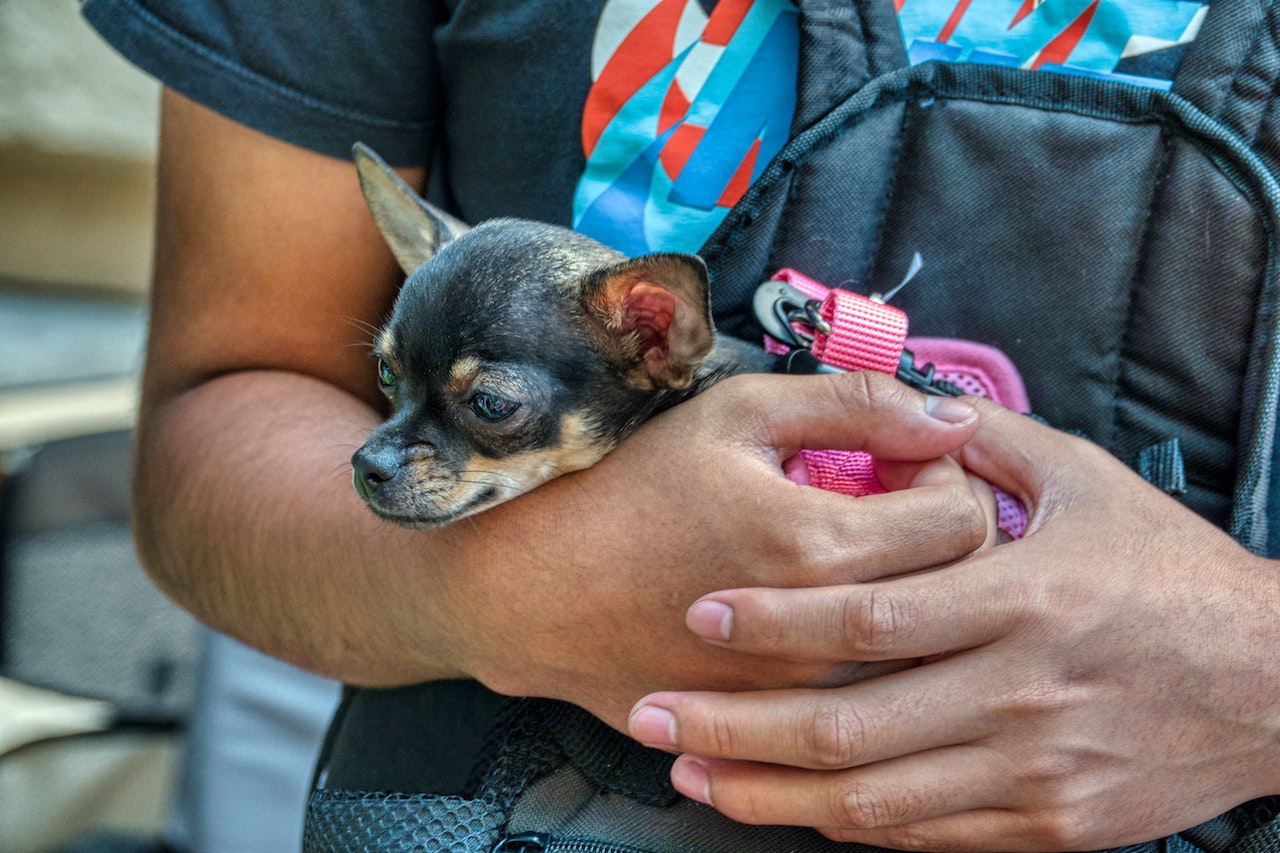
The most common reason why Chihuahuas become anxious is the fact that they are left alone. These dogs are accustomed to human interaction, so leaving them at home all of a sudden can trigger separation anxiety.
Aside from that, Chihuahuas can also develop anxiety even when someone is around. This is possible if their “favorite” person leaves the house for the first time. This kind of attachment is common among dogs, especially if that person is the one providing care for the canine.
Traumatic experience
Rescue dogs often have traumatic experiences with their former owners. Also, being locked in a small cage for a long period is enough to cause a slew of behavioral problems.
So once the rescue Chihuahua is rehomed, it may form an insecure attachment to its new owners. This will branch out into full-on separation anxiety once their owners leave the house.
In fact, even an isolated incident like a house being robbed or a dog being snatched away from its owner can lead to separation anxiety. Again, Chihuahuas are sensitive dogs, so they are prone to these kinds of problems.
Sudden changes at home
Moving to a new house, a member of the family passing away, or getting a new pet can all cause separation anxiety in a Chihuahua.
Aside from that, a sudden shift in the household’s schedule can stress a Chi and ultimately become the root cause of separation anxiety.
Signs that your Chihuahua has separation anxiety
There’s a variety of separation anxiety symptoms, which varies from one Chihuahua to another. Some of the signs may not occur all the time, so it can be tricky to assess whether your little dog is suffering from this problem.
But to give you an idea, the following are the most common symptoms of separation anxiety in dogs:
- Pacing and trembling as you’re about to leave
- Howling, barking, and intense vocalization
- Destructive behavior like digging and chewing
- Attempting to escape through windows and doors
- Panting and increased salivation
- Accidents all over the house despite being housebroken
These are just a few of the possible symptoms of separation anxiety that may manifest in your Chihuahua. Unfortunately, there are pet owners who will surrender their Chihuahuas because of this problem, which makes the situation worse for the helpless doggo.
Take note that giving up your dog to a shelter won’t fix its separation anxiety. In fact, it will make the condition much worse. Unless you’re ready to deal with these kinds of problems, you should put off the idea of getting a pet.
How long can you leave a Chihuahua alone?
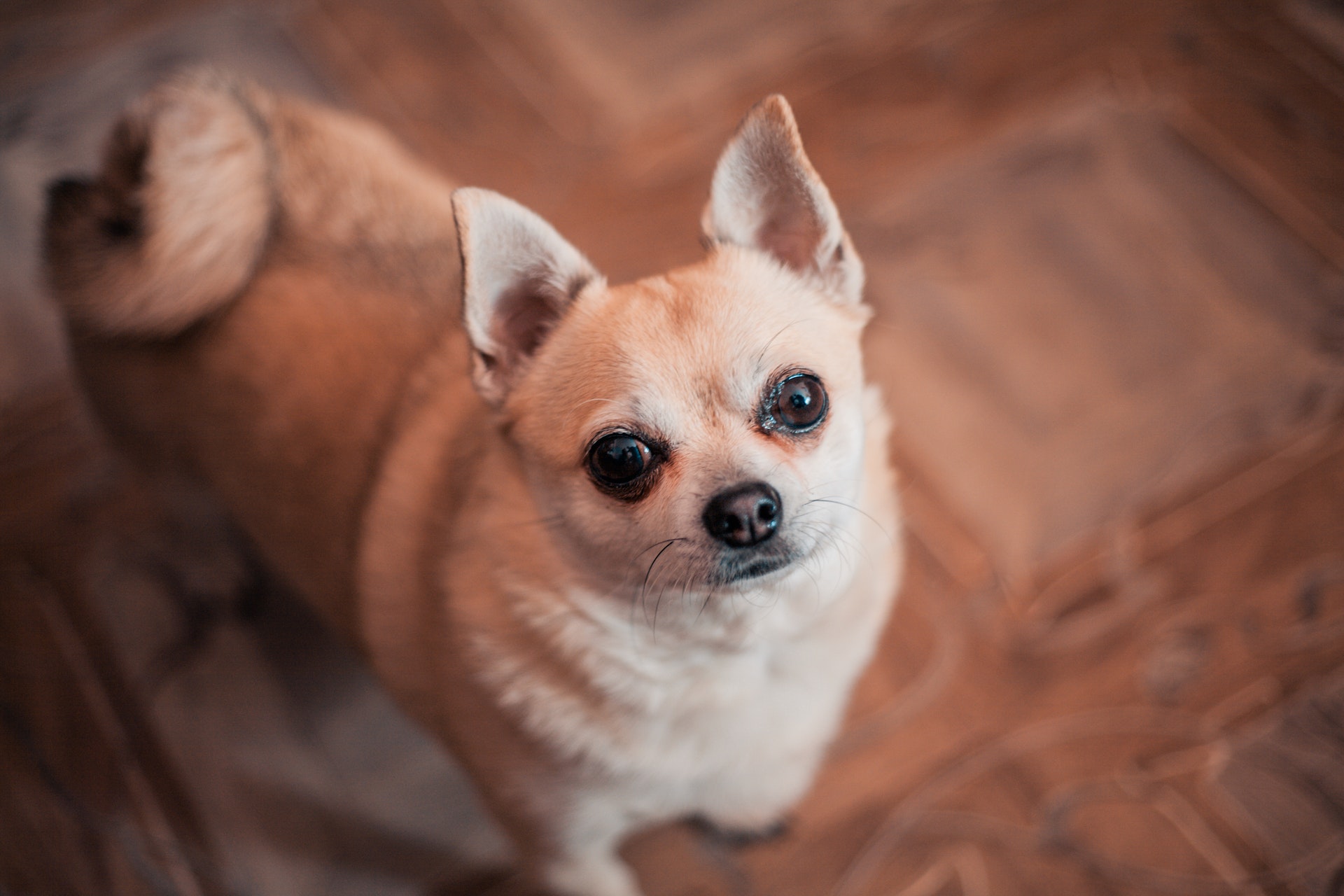
In general, dogs should only be left alone for a maximum of 10 hours. However, this can be a little different when it comes to Chihuahuas.
First, Chihuahuas are far more sensitive than other breeds. Leaving them alone for long periods may stretch their tolerance and lead to a serious case of anxiety.
On the other hand, Chihuahuas are small dogs. That means they may need more frequent feeding than bigger breeds. This is much so if you have a teacup or toy Chi at home. Because of this, someone has to feed your dog every 5 hours.
Meanwhile, bigger Chihuahuas can be fed two to three times a day. This means that it’s safe for you to leave them alone for an entire work shift.
Aside from food, it’s also important to factor in the safety of the environment while your Chihuahua is alone. Below, I discussed this part to help your Chihuahua adjust to being left at home.
However, it’s not just about safety, but also the behavior of your Chihuahua while you’re away. If you intend to leave your little dog alone at home, you have to prepare the pooch for it.
Read on below to know how you can prepare and train your nervous Chihuahua to become more independent.
How to train your Chihuahua to be left alone
To make sure that your Chihuahua will be calm and safe when left alone, you should consider the following points:
1. Make sure that your home is safe.
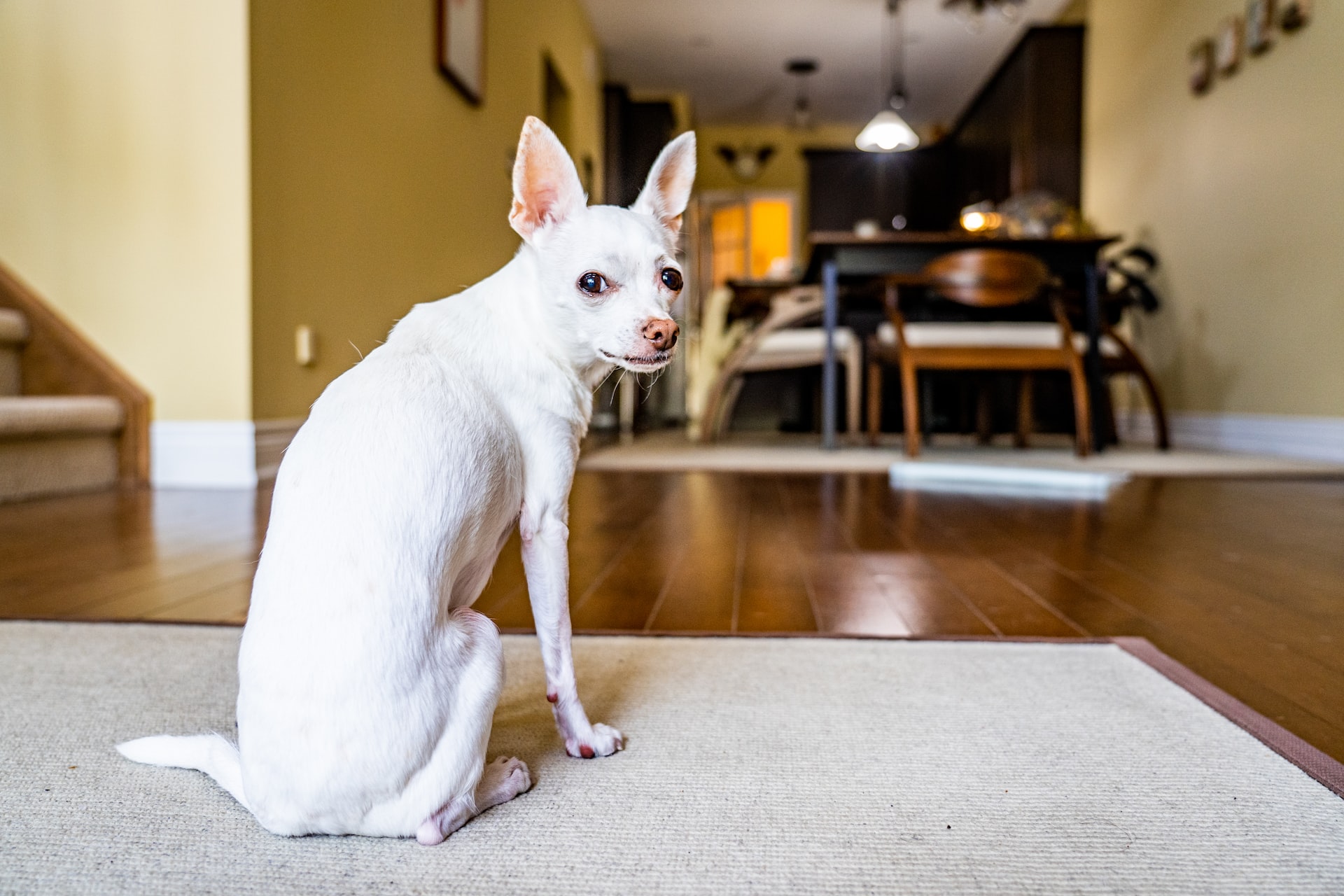
First, you have to make your home safe. Nervous Chihuahuas may try to escape by chewing through your window or door. This can cause damage to your home and physical harm to the small dog.
Aside from that, an anxious Chihuahua may become unruly at home. That means it may topple elevated items, which can cause injuries as well.
With that, the first thing you should do is make your home dog-proof. Remove any sharp objects or edges that could potentially hurt your pooch. Above all, secure chemicals, medications, and food items that are toxic to pets.
It also helps to create a defined area that your Chihuahua can access. You can use baby gates, playpens, or simply dedicate a room to your dog. By limiting the empty space your dog can see, you can help ease the symptoms of separation when left alone. Also, this will help your dog increase its tolerance if not having any companion.
2. Keep the place calm
Aside from that, you must keep your home as calm as possible. Some Chihuahuas will find white noise calming since it feels like they have company. For this, you can leave the TV or radio on. You can also play podcasts or music on your speaker system.
Moreover, you must give your Chihuahua its own quiet corner. It should have a warm bed, toys, and anything that will make the spot cozy.
Aside from that, remove any potential stressors that could heighten the anxiety of your Chihuahua while it’s alone.
As a pet owner, I also wear by leaving one of your used shirts on your Chihuahua’s bed. Your smell can help keep the pooch calm since it somehow indicates your presence.
3. Exercise your Chihuahua before leaving
It will also help a lot to exercise your Chihuahua before leaving it alone. This way, your pet won’t have the energy to become anxious when you’re about to leave home. In fact, your Chi will be fast asleep even before you get your keys.
However, you should remember that Chihuahuas don’t need a lot of exercise. This small breed only requires a few minutes of physical exertion in addition to short playtime sessions throughout the day.
You should never subject a Chi to excessive exercise as they could overheat or experience hypoglycemia easily. It should only be “pockets” of activities to help drain your Chihuahua’s energy.
Overall, exercising a Chi can be done entirely indoors. You can play fetch for a few minutes to help stimulate your dog before you leave the house.
4. Crate train your Chihuahua
The most effective way to leave your Chihuahua alone at home is to crate train it. Basically, you will train your pet to stay inside its crate for 7 to 8 hours a day. The small space of the crate mimics the natural instincts of dogs in the wild where they hide in cramped spaces to avoid predators.
Still, make sure that your Chihuahua’s crate is sized properly. It should be around 1.5 times the body size of your pet.
It’s important not to get a very large crate. The reason is that the excess space will allow your Chihuahua to soil inside the crate, which will defeat its purpose.
Take note that crate training a Chi must be done slowly and carefully. You have to let your doggo get used to the presence of the crate before you lure it in. Also, you shouldn’t lock your Chihuahua inside right away because this will make the crate feel like a trap.
Overall, you have to associate the crate with a positive experience like food, treats, toys, and playtime. From there, you can encourage your Chi to get inside the crate on its own.
5. Consider a companion dog
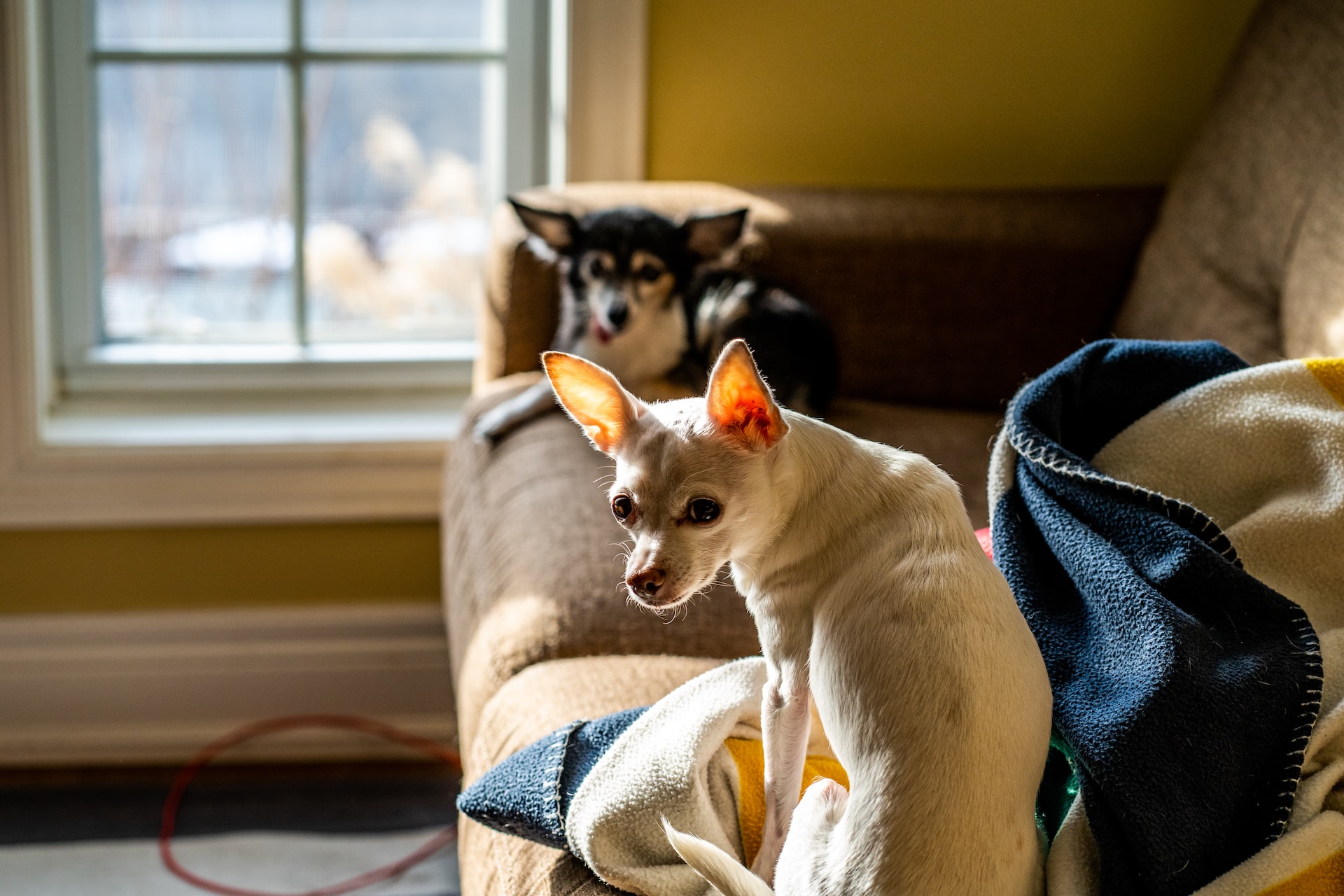
Another option you should consider is getting a second Chihuahua as a companion to your resident dog. This way, your pet will have someone else to play with instead of staying in your home alone for hours.
I specifically mentioned getting a second Chihuahua because this breed can be tricky to introduce to a new breed. And even if you’re getting the same kind, you still have to introduce the pup slowly to your original Chi. This is to prevent the risk of aggression and negative association between the two canines.
If you want to explore other breeds, consider one that has a complementing personality or size to your Chihuahua. Some of these are Shih Tzu, Chinese Crested Dog, Pug, or a Yorkshire Terrier.
However, you shouldn’t get a second dog just for the sake of keeping your Chi accompanied. Make sure that you’re prepared for the responsibility of raising another pet.
6. Keep your Chihuahua busy
It’s important to keep your Chihuahua busy if you’re planning to leave it alone at home. You can get interactive toys to help the dog pass the time. These toys will also keep the canine’s mind away from getting nervous or noticing your absence.
You can purchase any toy that will appeal to your Chihuahua. However, make sure that the toy has no parts that may come off and choke your doggo while you’re away.
When it comes to chew toys, you must replace them once it already has shredded parts. This is to prevent the ingestion of the material, which can potentially cause intestinal blockages on your Chi.
7. Get a pet camera
Pet cameras are popular with dog owners who have to leave their Chihuahuas while they are at work. It allows them to see what their pets are doing. Also, these cameras have two-way audio that will let you call your dog and communicate. It helps ease separation anxiety on the part of the Chihuahua.
Some of these cameras are even equipped with a treat dispenser. It connects to a mobile app that allows you to toss a treat to your Chihuahua remotely. You can even find one with laser toys, so you can give your pooch a short playtime.
Aside from that, pet cameras can also work as a regular security cam for your home. It records footage and will even send mobile notifications once it detects movements on the camera view.
8. Consult the vet about calming aids
If your Chihuahua has a chronic case of separation anxiety, you can consider giving calming aids. Feel free to consult your dog’s vet about this, so you’ll know what type and dosage matches your pooch.
Calming aids for dogs are either administered orally or diffused inside the room. Both works, but results vary across canines.
A common option is calming treats infused with a mild sedative ingredient. It helps your Chihuahua calm down and fall asleep without the need for a vet prescription. This can also double as a regular treat.
Meanwhile, pet owners also opt for calming diffusers. These devices are plugged into a wall, which will then diffuse an artificial pheromone that mimics the scent produced by nursing canines.
Aside from that, there are also calming collars, which also release the same artificial pheromone as an electronic diffuser.
Feel free to try and see which one works for your Chi best. If all else fails, your dog’s vet can prescribe a sedative with a specific dosage and type.
9. Hire a pet sitter
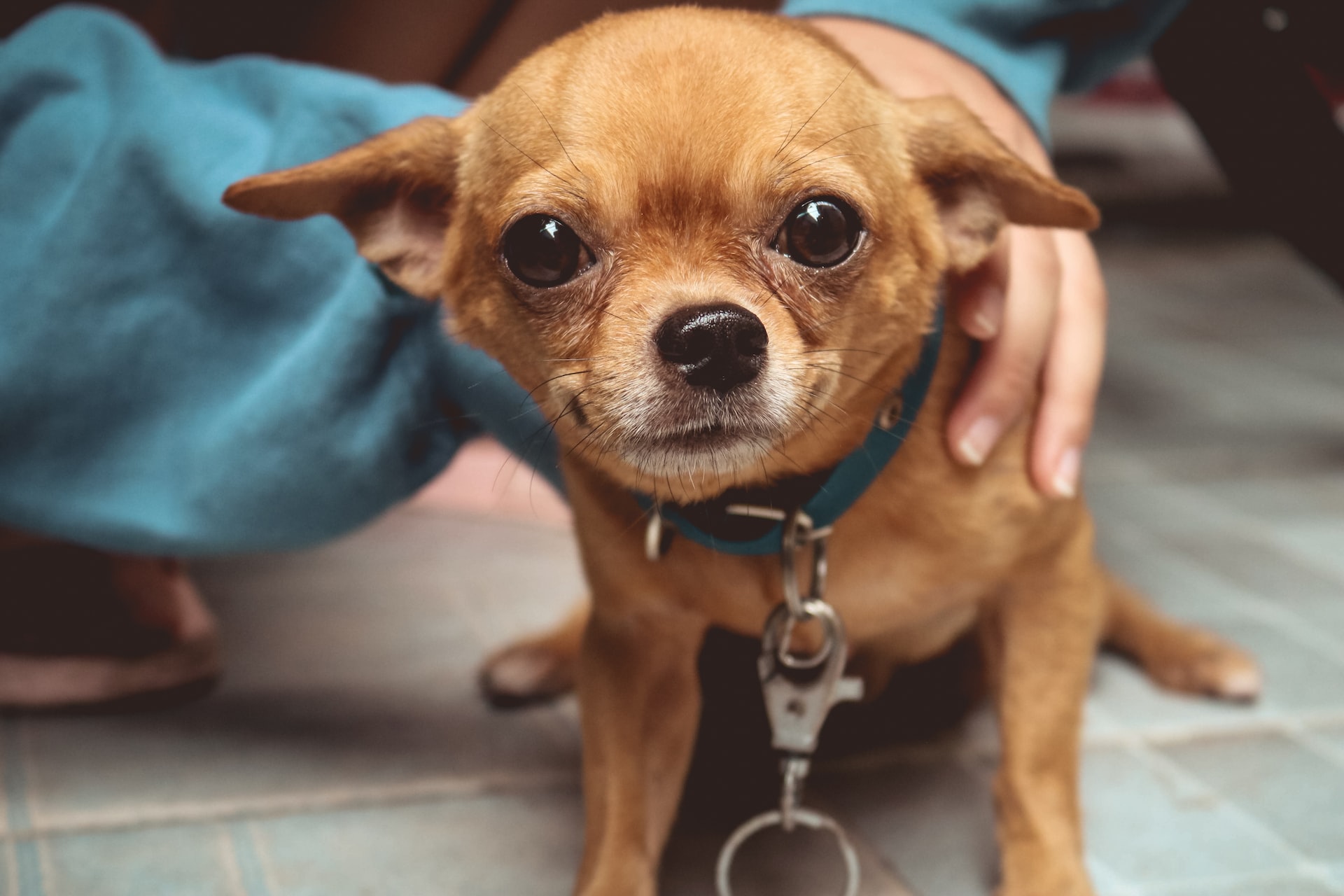
Pet sitters are lifesavers, especially if your Chihuahua is still a puppy. The sitter can drop by to feed the pooch or give it a short playtime. This way, your pet gets a few breaks throughout the day while you’re not home.
However, this can be a tricky solution since Chihuahuas aren’t really the friendliest to strangers. If you intend to try this solution, make sure that you desensitize and train your Chihuahua first.
Nevertheless, it will be easier if the sitter is someone your Chi is already familiar with. It can be a friend, family member, or a neighbor you can pay a fee to check on your dog on several occasions per day.
10. Consider doggy daycare
If all the methods above didn’t work for your Chihuahua, your best resort is to enroll it in a doggy daycare. This way, you won’t have to leave the dog alone at home.
In doggy daycares, your Chihuahua will be grouped with dogs of the same size and personality. Each group has personalized activities and approaches to ensure that the canines are well taken care of.
The best thing about doggy daycares is that your Chi will be socialized and desensitized to various stimuli. However, you should note that most of these daycare facilities will require your dog to be at least obedience trained.
Frequently Asked Questions
Q: Can you leave a Chihuahua alone for 8 years?
A: Chihuahuas don’t thrive well in isolation. But with proper training, you can leave them alone for 8 hours. Some can stretch it to 10 straight hours, but I don’t recommend this, especially for toy and teacup Chis. So before you get a Chihuahua, make sure that you’re ready to meet their needs. Otherwise, you’re better off raising a more independent breed.
Q: Do Chihuahuas get separation anxiety?
A: Chihuahuas are notorious for separation anxiety. This breed is very sensitive and can easily succumb to stress if not trained well. It’s also important to desensitize your Chihuahua, so it can endure being alone for a longer period. You can also consider options like pet-sitting, doggy daycare, and dog walkers to keep your pooch entertained.
Q: Is it okay to leave a Chihuahua while at work?
A: It’s totally fine to leave a Chihuahua if you’re going to work. However, make sure that you train your pooch first to ensure that it won’t suffer from separation anxiety. Crate training is an excellent example here. This way, your Chihuahua will feel calm and secure while you’re at work.
Q: Why does my Chihuahua cry when I leave?
A: If your Chihuahua is crying whenever you’re leaving, it’s a sign of separation anxiety. It’s not a good thing as it can lead to more behavioral problems if not addressed. Aside from crying, your Chi may exhibit restlessness and fear. In some cases, the pooch will have accidents around the house due to anxiety.
Q: Do Chihuahuas get their feelings hurt?
A: Chihuahuas can get their feelings hurt, especially when left alone and not given enough attention. Remember that this breed is clingy, so you must provide them with ample attention and training to prevent any problems related to their behavior.
Final words
How long can you leave a Chihuahua alone? About 7 hours is a reasonable period, though some can stretch it to 10 hours per day.
Overall, you should condition your Chihuahua first if you’re planning to leave it alone for a specific period. This way, your pooch won’t suffer from separation anxiety and unnecessary stress.
Do you have other methods or advice you want to add here? Let us know in the comment section!
Here at ILoveChihuahua, we share our personal experiences as owners of this feisty breed. We talk about recommended methods, dog supplies picks, and advice on common Chihuahua problems. Our goal is to promote responsible dog ownership, so there would be fewer Chihuahuas in shelters.

